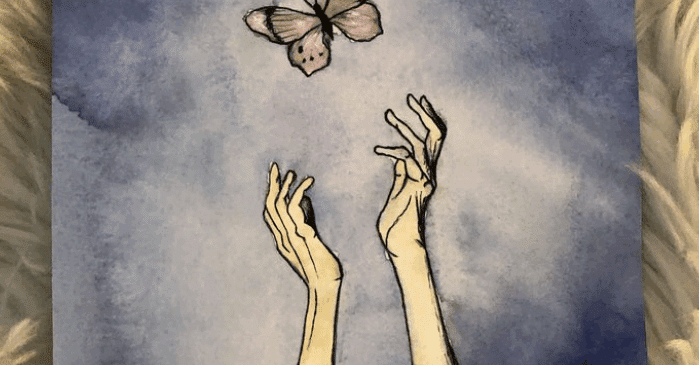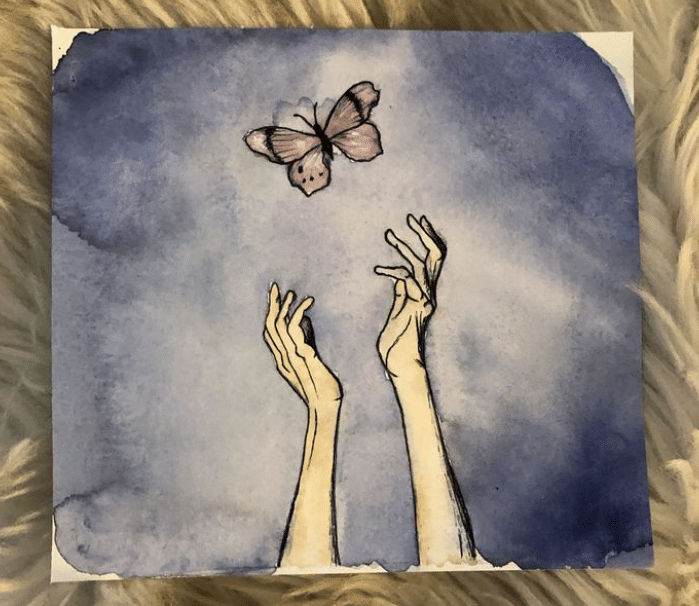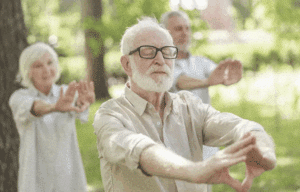
In my work at Jewish Senior Life, I witness quiet visits. Loud laughter. Silent lunches. The long, slow unfolding of hellos and goodbyes… love in all its imperfect forms.
One day, I watched a woman visit her husband for lunch. He was already seated, a cloth napkin tucked neatly into his collar, a half-eaten bowl of parve chocolate ice cream in front of him. His face lit up when he saw her, like a child spotting his mother on the playground.
She sat down, smiled, and said gently, “You already had dessert?” He grinned. “I like the chocolate one.” She hesitated. “But you’ve had enough sweets this week, haven’t you?” He nodded, unsure, and pushed the bowl away.
It was just a small moment. A tiny interaction. But I heard it and made a note to myself.
Have you ever witnessed someone correcting their spouse for any number of reasons …. overeating, adding too much sugar to their coffee… ordering another cocktail… for lighting a cigar?
It usually comes from love. From worry. From a sense of duty that says: I must keep you safe.
But when someone is growing older, or living with dementia, the future becomes a moving target. The guard rails we try to build, our rules, our reminders, our careful restrictions, can slowly become walls. Walls between who they were and who they are now. Walls between our intentions and their joy.
And here’s something I’ve noticed repeatedly: We often treat strangers with more kindness and patience than we show the people we love most.
We smile at the barista. We say “no problem” when a stranger takes too long at the checkout. But with our loved ones? We correct. We interrupt. We remind. We scold, because we’re comfortable, because we care, because we’re tired, and because somewhere along the line we started believing that love looks like keeping someone on track.
But what if it doesn’t? What if love looks like letting go? Like softening our grip?
Like not saying the thing that’s on the tip of our tongue, even if it feels helpful. Like sitting in silence instead of correcting the story they’ve already told you three times. Like allowing them to have another ice cream, even if they already had dessert after lunch.
We must remember that the person in front of us, despite illness, despite age, is still the person they’ve always been. Their preferences, their personality, their sense of humor, their stubborn streak, their sweet tooth… it’s all still there. And it matters.
Preserving their dignity means honoring the life they’ve lived, the choices they’ve made, and the identity they’ve built over a lifetime. We can offer suggestions, when necessary, but what we can’t and should not try is to live their lives for them.
We will make mistakes, and so will they. Some of them are harder than others. But what matters most is that they still get to live…. fully, freely, and on their own terms. And that we get to live with them. Not just as caregivers, but as companions. As witnesses. As co-conspirators in joy.
There’s wisdom in restraint. There’s love in silence. Not every comment needs to be judged, reviewed, or corrected. Sometimes the most generous thing we can do is keep our mouths closed and our hearts open.
Disease doesn’t ask us to fix everything. It asks us to witness. To accompany. To be present. It asks us to choose grace over control, compassion over precision. And maybe the greatest act of love isn’t protecting someone from what they want. But honoring that desire, even when it no longer fits what’s “best.” This isn’t easy. Loving this way with open hands instead of closed fists. It takes practice, patience, and no small amount of grief.
Let them have the ice cream. Let them order the drink. Let them feel that familiar comfort in a world that’s becoming less familiar every day. Because maybe that little indulgence, whatever it is, is something they still recognize as theirs. And maybe, if we’re paying attention, we’ll recognize it too.
Just down the hall from my development office in Fleischman Residence, is the Dorothy & Peter Brown Jewish Community Adult Day Program. Every day, I witness loving caregivers walk alongside their spouses, parents, siblings, gently guiding them to our welcoming place. There’s no rush. No reprimand. Just hands held, jackets zipped, eyes meeting for a moment of connection. It’s quiet, often bittersweet, always beautiful.
They’re not trying to change the course of this disease. They’re simply accompanying someone they love.
That, to me, is the deepest kind of love there is.
Shabbat Shalom






